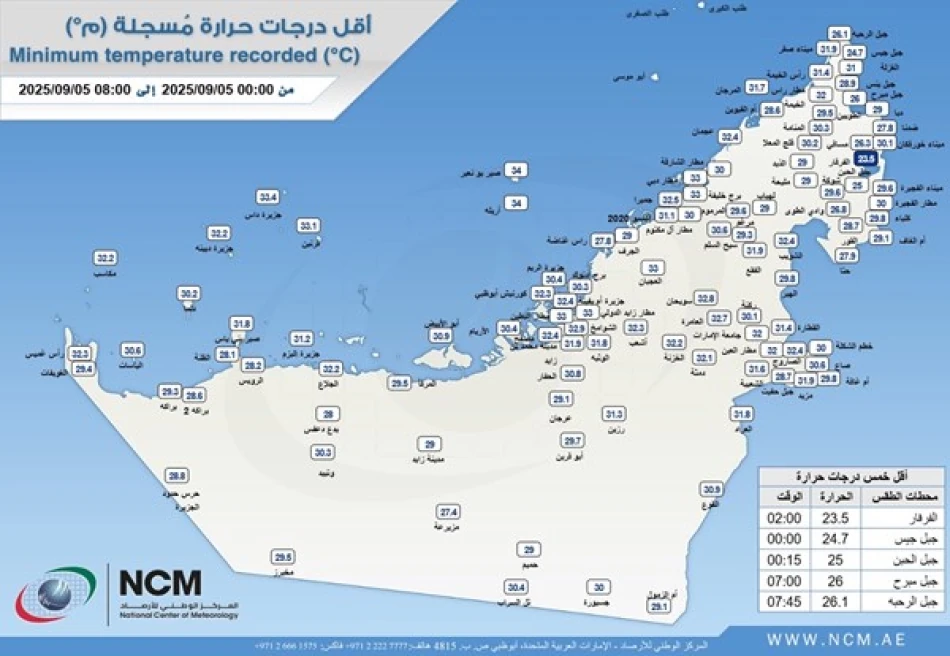
Lowest Temperature Recorded Across the Nation: Brace for Winter's Chill
UAE Records Surprisingly Mild Winter Low of 23.5°C as Climate Patterns Shift
The United Arab Emirates experienced its coolest temperature of the day at a relatively warm 23.5°C (74.3°F) in Al Farfar, Fujairah, highlighting the nation's consistently hot climate even during winter months. The reading, recorded at 2:00 AM local time by the National Center of Meteorology, underscores the UAE's position as one of the world's most consistently warm countries year-round.
A Climate That Defies Traditional Seasons
While much of the Northern Hemisphere experiences freezing temperatures in January, the UAE's "coldest" moment of the day registered at what most temperate regions would consider a pleasant spring evening. The Al Farfar reading represents typical winter conditions for the Emirates, where temperatures rarely dip below 20°C even during the coolest months.
Fujairah, located on the UAE's eastern coast along the Gulf of Oman, typically experiences slightly cooler temperatures than the country's desert interior due to its coastal location and mountainous terrain of the Hajar range.
Regional Climate Context
The UAE's winter temperature patterns reflect broader Gulf region climate characteristics, where seasonal variation remains minimal compared to continental climates. Unlike neighboring countries such as Iran or even Saudi Arabia's northern regions, which can experience near-freezing temperatures, the UAE's maritime desert climate maintains remarkable consistency.
This climate stability has significant implications for the country's energy consumption patterns, tourism industry, and urban planning strategies. The consistent warmth means year-round cooling demands, contributing to some of the world's highest per-capita energy consumption rates.
Implications for Infrastructure and Economy
The persistently warm climate drives several economic and infrastructural considerations for the UAE. Energy-intensive cooling systems operate continuously, making renewable energy initiatives particularly crucial for economic sustainability. The country's ambitious solar energy projects, including the Mohammed bin Rashid Al Maktoum Solar Park, become even more strategically important given these constant cooling demands.
For the tourism sector, these mild winter temperatures represent a competitive advantage, attracting visitors seeking warm weather during Northern Hemisphere winter months. However, the lack of significant seasonal temperature variation also means the UAE relies heavily on artificial climate control to maintain comfortable indoor environments year-round.
Most Viewed News

 Layla Al Mansoori
Layla Al Mansoori






